Already a subscriber? Activate your premium account
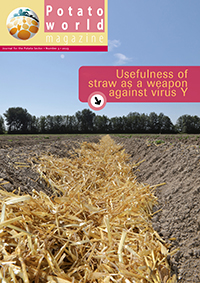
Potatoworld Magazine
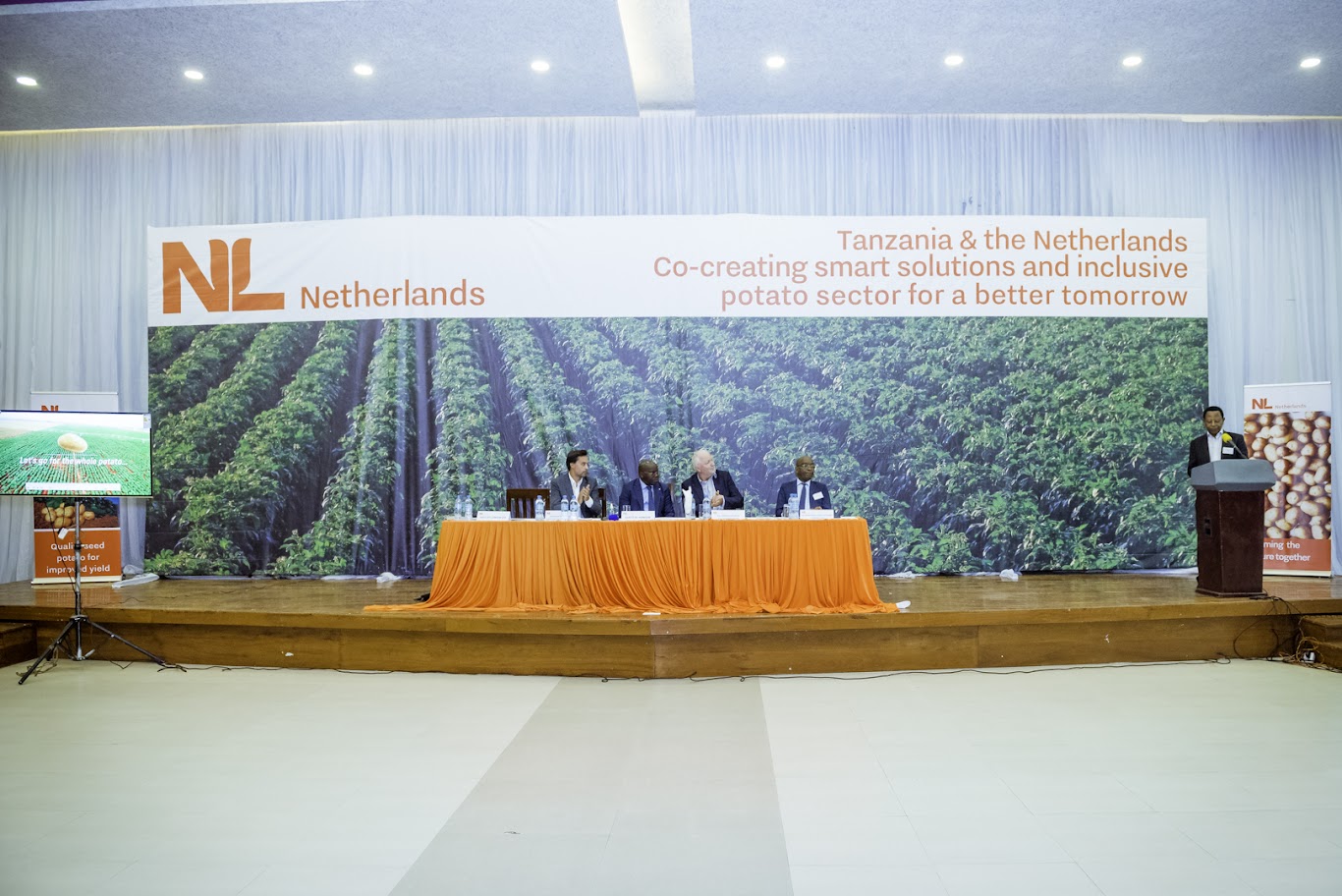
The Netherlands and Tanzania have been working together to develop the potato sector in Tanzania for the past six years. The Dutch Ministry of Agriculture, Nature and Food Quality now reports that the positive results of this cooperation have set the stage for further development, and organized a potato conference in Mbeya, Tanzania, in partnership with the Agricultural department of the Netherlands Embassy, the Top sector, the Dutch private sector and Wageningen University at the end of 2022. The conference focused on the theme ‘Co-creating smart solutions to an inclusive potato sector for a better tomorrow’, while seeking to bring together collaboration and partnerships among different actors along potato value chain. In order to address the challenges for the potato sector, several brainstorming sessions were held in March of this year.
‘With a potential to provide more harvest in a given piece of land compared to its closer energy dense crops such as maize and rice, the potato crop stands a high chance on ensuring both food security and adaptation to the ever-changing climate. However, more combined efforts from the stakeholders are required to holistically address challenges in the potato sector and find sustainable solutions to achieve a transformation from production all the way to consumption’, the ministry states.
During panel discussions on how to create synergies and strengthen the sector last December, representatives raised concerns about the lack of knowledge on market information, storage solutions, soil analyses and suitability. According to these representatives, this missing link has an influence on the development of the potato sector in Tanzania. Additionally, they emphasized the need to conduct research based on climate change adaptation and to collaborate with farmers and the private sector in order to respond to market needs and mobilize resources. Another subject the speakers stressed was the importance of awareness on the benefits of using quality seeds, with all actors playing a role in developing the sector.
Next to challenges, the conference also highlighted several drivers and opportunities. They state that markets for potatoes do exist, but are currently untapped. Also, good quality seeds and varieties are available, but the main challenge is to access and utilize them effectively. Speaking during the conference, Ambassador H.E. Wiebe de Boer emphasized the significance of the potato crop for socio-economic development of both the Netherlands and Tanzania. He encouraged the public sector, private sector, academia, research, and non-government actors to work together to ensure that quality seeds, market information, and extension services are readily available to farmers. ‘Furthermore, the potato subsector must take the effects of climate change seriously and innovate to increase efficiency in the use of land and other resources’, he stated. The conference featured several events, such as the premiere of a documentary about the Tanzanian potato sector, emphasizing the importance of collaboration between public and private sectors in developing the industry and highlighting the vision of various stakeholders.
The Dutch Ministry also reports that, to champion a structured way on coordination and communication for the potatoes stakeholders in Tanzania, a process is currently ongoing to create the Potato Council of Tanzania (PCT). This council will establish a mechanism for stakeholders to systematically engage in dialogues, to advocate for a more sustainable potato sector in Tanzania. It is expected that the council will comprise representatives from both the private sector and the government as well as the farmers, which is seen as a crucial step on accelerating synergies and collaboration in the Tanzania potato industry.
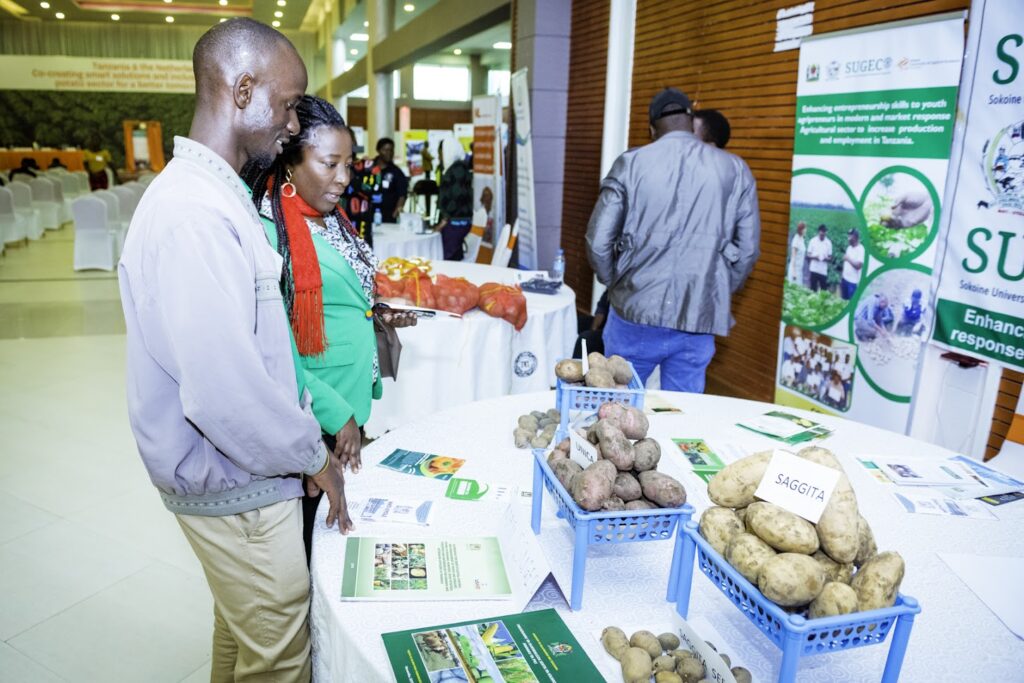
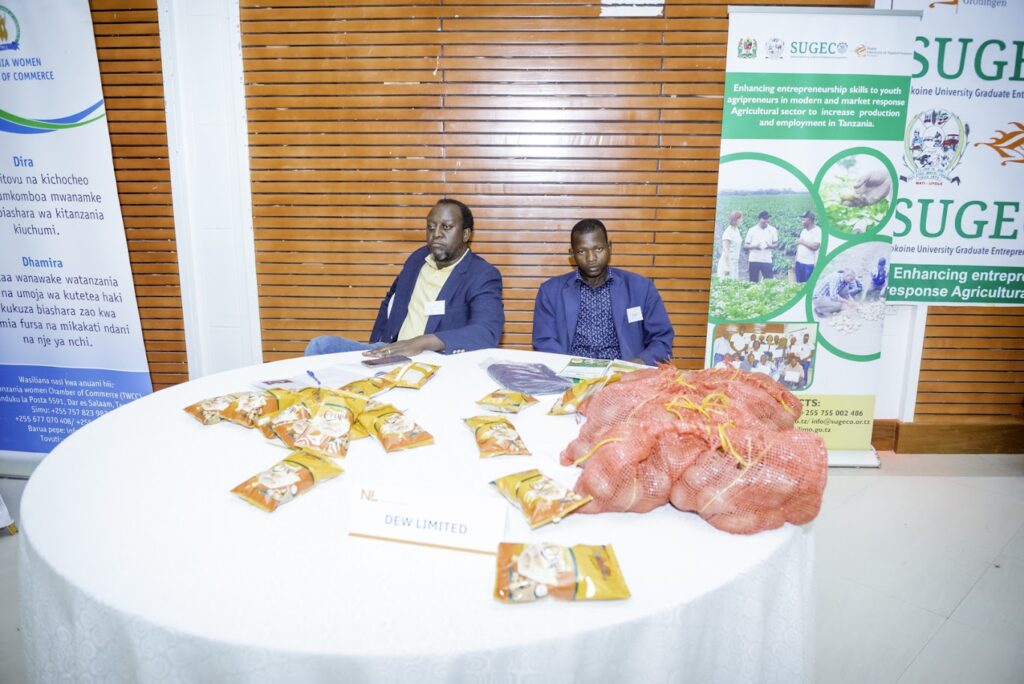
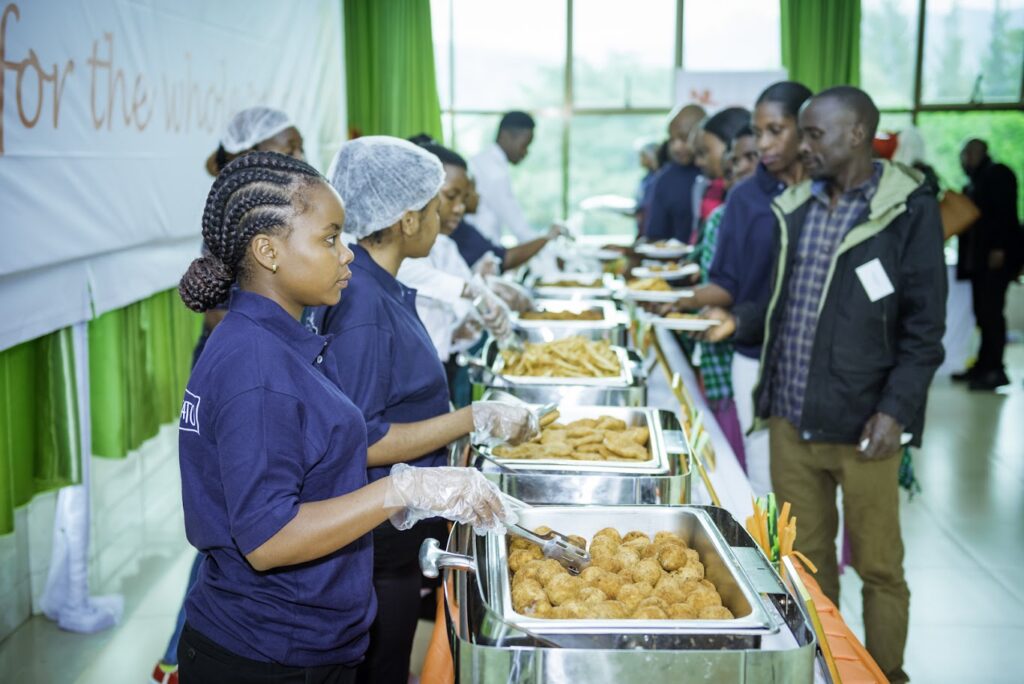
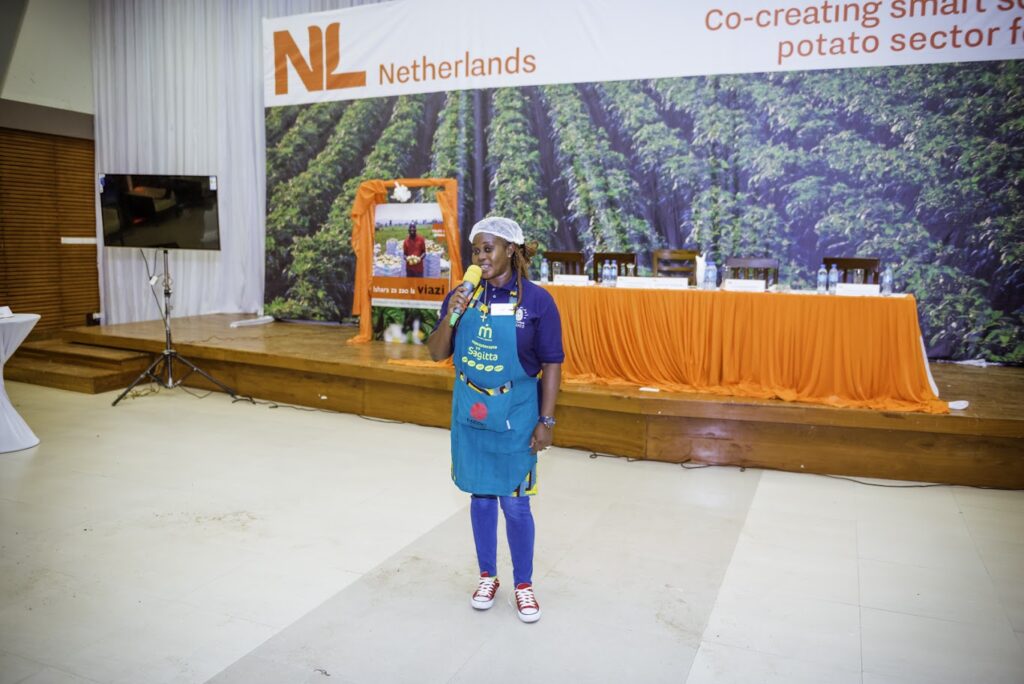
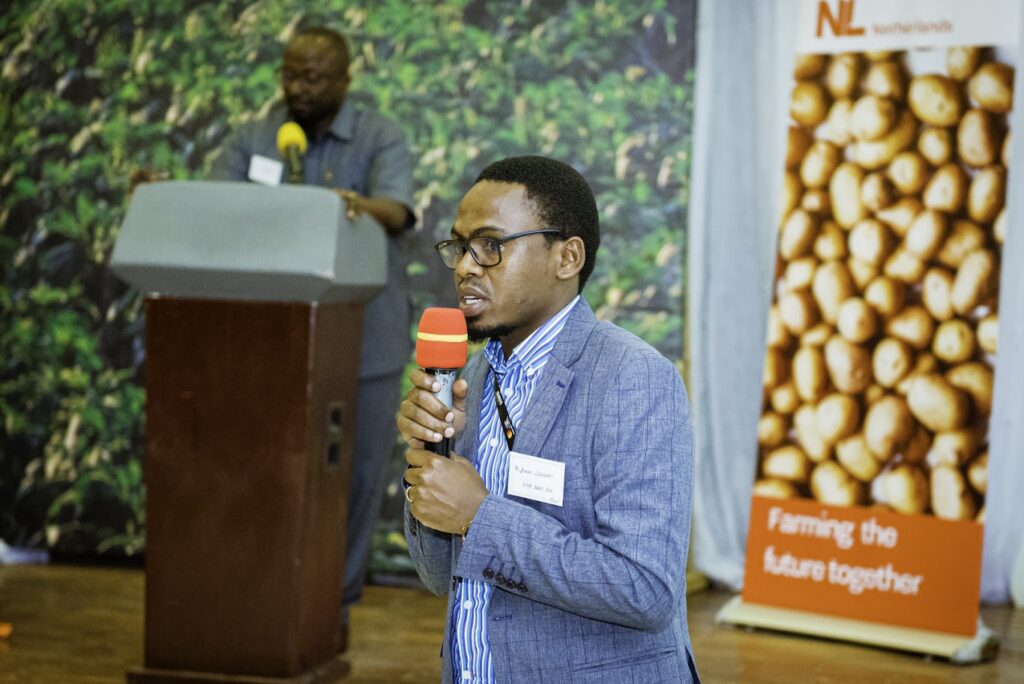
The conference focused on the theme ‘Co-creating smart solutions to an inclusive potato sector for a better tomorrow’, while seeking to bring together collaboration and partnerships among different actors along potato value chain.
To address the challenges detected for the potato sector in Tanzania, including issues related to seed quality and agrologistics, several brainstorming sessions were held in the city of Arusha in March. Stakeholders from across the sector discussed solutions and strategies for a more sustainable and efficient potato industry and the latest developments in agrologistics in Tanzania. These brainstorming sessions were organized by the Dutch Embassy, in collaboration with Tanzania Horticultural Sector Association (TAHA) and the Tanzanian Ministry of Agriculture. Attending stakeholders included farmers, researchers, government officials, and (Dutch) representatives from the private sector. One of the key issues discussed at the sessions was the importance of high-quality seeds for potato production. ‘The use of low-quality seeds can result in poor yields, disease outbreaks, and reduced profitability for farmers. To address these challenges, participants discussed the importance of promoting the use of certified seeds and strengthening the regulatory process along the registration of seed potato varieties’, the ministry states. ‘Investment on the required infrastructures for seed potato multiplication was also emphasized. It was noted the current demand for the seed potato is not matched with the multiplication capacity. It is estimated that the annual demand of certified seed potato stands at 230,000 tons, while the estimated seed availability stands at only 10 percent. This calls for the immediate need for a mechanism to strengthen multiplication capacity of certified seed potato varieties demanded by the farmers.’
Another important topic of discussion the ministry reports, is the need for efficient agrologistics for the export of perishable goods, including potatoes. ‘The transport and storage of perishable crops can be challenging, particularly in rural areas with limited infrastructure. To address these challenges, participants discussed the importance of investing in cold storage facilities, improving transportation networks, and promoting better coordination between farmers, transporters, and buyers’, the ministry concludes.
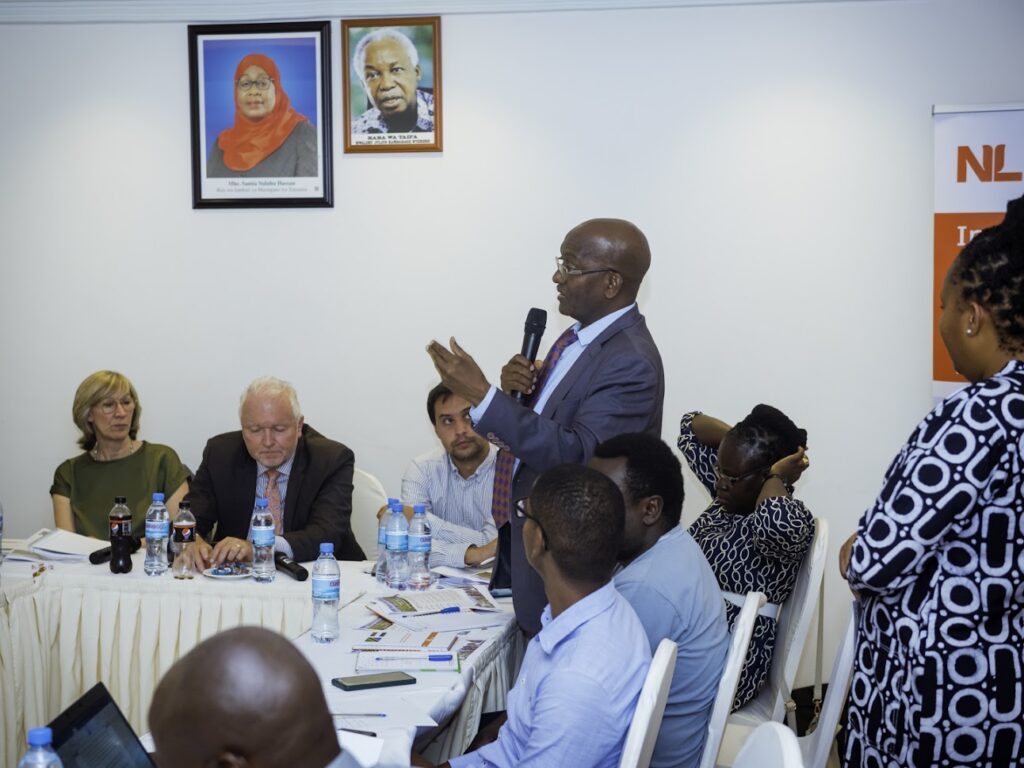
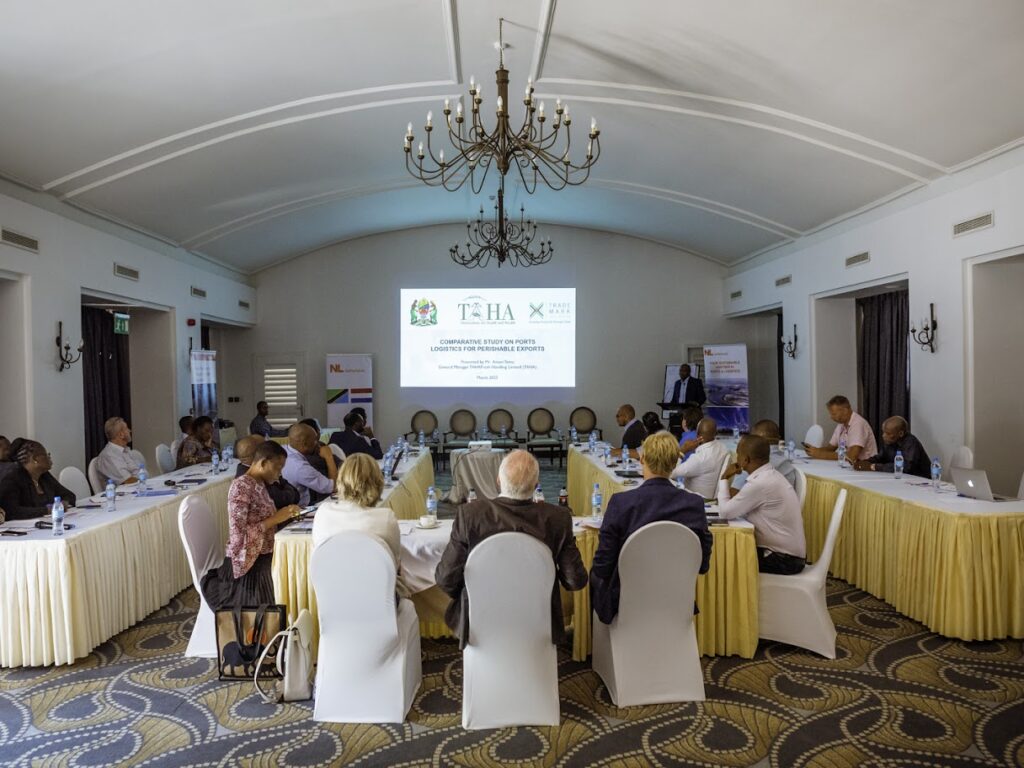
A seed potato brainstorming session (L) and a brainstorming session on logistics (R) were held, addressing challenges detected for the potato sector in Tanzania.
Events
©2015 - 2024 Potatoworld | Webdesign and realisation COMMPRO